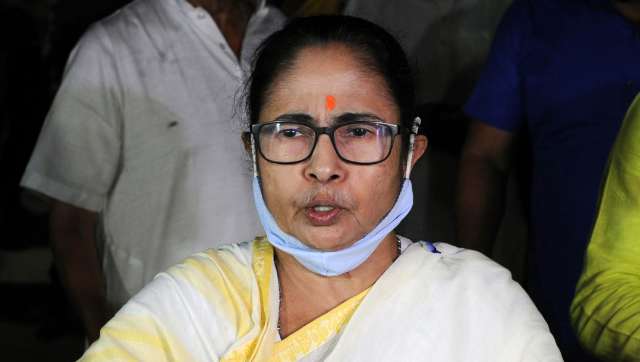The West Bengal government is all set to move a Bill that will oust the Governor as the chancellor of all state-run universities, replacing him with the chief minister. This comes months after the state government had appointed vice-chancellors in many state-run universities without consulting the governor. The governor, a Supreme Court lawyer himself, had called the move illegal. The tussle between the Raj Bhavan and the state government is not a new phenomenon in Indian democracy. In the case of Bengal, Chief Minister Mamata Banerjee and Governor Jagdeep Dhankhar have had a troubled equation from the beginning of the latter’s tenure. The upcoming Bill is one in a series of moves that either seem to put a spanner in the governor’s works or curtail his powers altogether. In the education vertical itself, other than the appointments that were made without his advice or consent, many vice-chancellors have refused to attend meetings he has convened, or adhere to his summons. On many occasions, the governor has not even been invited for convocations of universities of which he himself serves as the chancellor. [caption id=“attachment_10580571” align=“alignnone” width=“640”]  West Bengal Chief Minister Mamata Banerjee. ANI[/caption] The Trinamool Congress has defended many of these moves, claiming that they seek to curtail the governor’s interference in the government’s works and that the government has an electoral mandate from the people. However, whether it be the new Bill or the various measures to undermine him, these moves seem to be aimed at Dhankhar personally. The basis for the new Bill, or for the many ways in which the governor’s office has been undermined, seems not to lie in process or precedent. Instead, the government considers Dhankhar, not as the holder of a constitutional post but the agent of a rival party, and it is through this political prism that the state’s actions, policies and jurisprudence are being determined. The BJP has been the Trinamool’s only serious challenger in West Bengal ever since the party stormed to power in 2011. The 2019 general elections witnessed an unprecedented performance by the BJP, announcing its arrival on Bengal’s political scene. In comparison, the BJP’s performance in the 2021 Assembly elections might have been lacklustre and underwhelming, but the party tried to pull all stops to dislodge the Banerjee government. Despite its shortcomings, the fact that it did give Banerjee a run for her money is almost impossible to deny. This unapologetic approach of taking the fight to the ruling party was unheard of in Bengal politics. Until the BJP emerged as a force to reckon with in 2019, Mamata Banerjee had been the only entity in decades who had consistently gone against the tide, and without much impact for the most part, until the communists were finally dislodged. Before the Trinamool came about, the state unit of the Congress seemed quite satisfied in its inertia, occupying the Opposition benches election after election. A serious political alternative is something that Bengal’s political culture is yet to get used to, and it is now the Trinamool that seems unable to adjust to it.
***
Also Read **West Bengal govt to move bill to make CM chancellor of state universities, replacing governor** **Mamata vs Dhankhar: In Bengal, fresh row erupts over talk of replacing governor as university chancellor**
***
The new Bill to curtail the governor’s prerogatives is just one example, albeit a small one, of how political insecurity clouds both judgement and propriety. At the national level, it has resulted in certain unhealthy tendencies. For example, the state government has made serious attempts to withhold consent to CBI investigations in the state, not for reasons of impropriety but in overtly political matters such as post-poll violence. The state has also opposed the Centre’s move to extend the BSF’s jurisdiction from 15 km to 50 km inside the India-Bangladesh border, calling it an assault on India’s federal structure and even passing a resolution in the Bengal Assembly against it. The sacrifice of national security at the political altar seems to be a perfectly acceptable response to anything that finds its origins in the Union government. Restricting the consequences of political insecurity to the unprecedented manipulation of government machinery misses the elephant in the room, namely the post-poll violence that West Bengal witnessed. Arguably, the violence rages on unabated even today as bodies of BJP cadres continue to be found butchered or hanging at regular intervals, more than one year after the elections. Violence targeting the BJP became rampant ever since the BJP emerged as a force to reckon with. Just how politically insecure the ruling dispensation had become came to the fore after the Trinamool was re-elected last year, when hundreds of people connected to the BJP were killed, raped or forced to flee their homes. Instead of gracefully accepting a positive mandate and letting the political ground realities speak for themselves, the ruling dispensation felt the need to mark its territory and send out a clear message. [caption id=“attachment_9124071” align=“alignnone” width=“640”]  Trinamool Congress is facing a tough challenge from the BJP in West Bengal. [/caption] Targeting Governor Dhankhar, playing games with national security, or indulging in ruthless political violence, are symptoms of a deeper malaise. One would typically find similar symptoms in the communist playbook as well, especially in its decades-long stint in Bengal. One could easily dismiss it or label it as Bengal’s political culture, but that would be missing the wood for the trees. The Trinamool Congress has not just dislodged or replaced the communists, it has emerged as the new communist regime in a certain sense. Much like the communists, no degree of political challenge is acceptable, it must be repeatedly crushed at every level. And much like the communists, the line separating the party from the government has gradually blurred to the point where it is no longer visible. The reason they perceive only Jagdish Dhankhar the individual and not the governor, or only BJP the party and not the Union government, is because they project their own reality on others. The writer is an author and political commentator. He has authored the book, ‘Himanta Biswa Sarma: From Boy Wonder to CM’. The views expressed in this article are those of the author and do not represent the stand of this publication. Read all the Latest News , Trending News , Cricket News , Bollywood News , India News and Entertainment News here. Follow us on Facebook, Twitter and Instagram.


)
)
)
)
)
)
)
)
)



